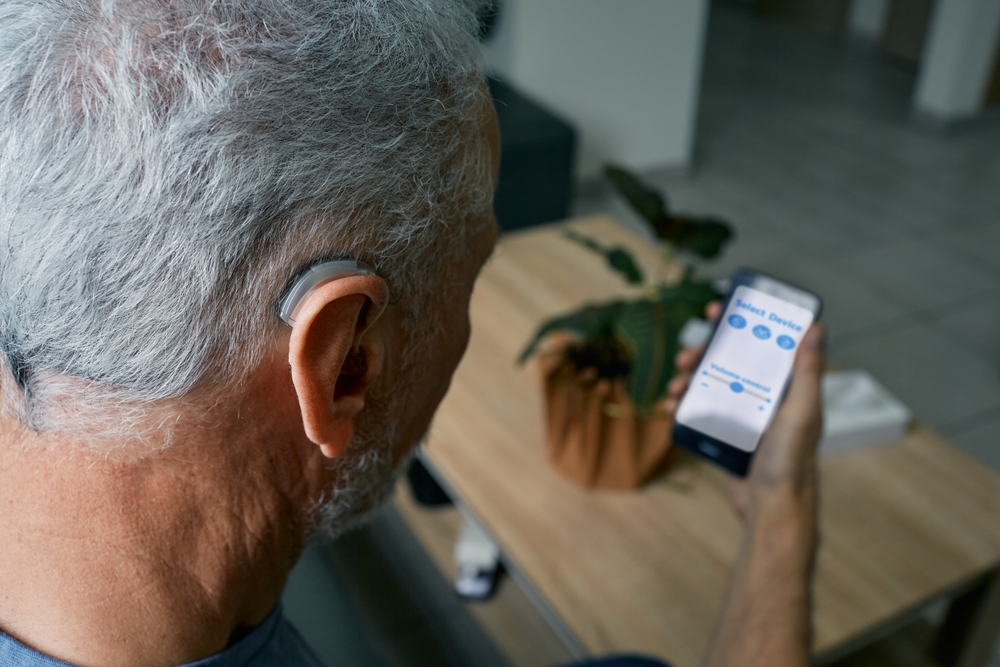Hearing aids have been shown to benefit your health in unexpected ways including improving cognitive abilities, depression and decreasing your risk of falls. Which is why when devices malfunction (or seem to malfunction), it’s so frustrating. When you start noticing buzzing feedback, or when your hearing aids suddenly go silent, expedient solutions can make the difference between a lovely family dinner or a miserable one.
Luckily, there are some basic troubleshooting steps you can take which may alleviate or address some common hearing aid issues. The faster you figure out what’s wrong with your hearing aid, the sooner you can get back to what’s important.
Try changing the batteries
One of the most common issues with hearing aids is a low battery. Some hearing aids have rechargeable batteries. Other devices are designed to have their batteries swapped out. Here are a few of the symptoms that might lead you to believe the batteries are the bad guy when your device goes on the fritz:
- Dull sound quality: It feels like someone is talking to you underwater or from the other side of the room.
- Weak sounds: You feel like you are constantly straining to hear what’s going on around you.
- Hearing aids won’t turn on: If your hearing aid won’t turn on–or won’t stay on–there’s a good chance the battery is the primary problem.
Here’s what you do about it:
- Ensure the batteries are fully charged. If your hearing aid is equipped with rechargeable batteries, let them charge for a few hours or overnight.
- Double-check to make sure the right batteries are installed. Putting the wrong type of battery in your hearing aid can lead to malfunctions. (Sometimes the wrong type of battery can be purchased in the right size–so double-checking is essential.)
- Replace the batteries if your hearing aid is designed to allow that. In some cases, rechargeable batteries are sealed into devices, and if that’s the case, you might have to bring the hearing aid to a specialist.
Try cleaning every surface
Hearing aids, naturally, spend a lot of time in your ears. And there’s a lot happening in there (your ears are like party rooms, only more hygienic). So it’s no surprise that your hearing aids may get a little dirty in the process of helping you hear. Most hearing aid models are designed to cope with a certain amount of earwax buildup, but it’s a good idea to have a regular cleaning schedule too. A few issues related to buildup and dirt may include:
- Feedback: It’s possible that earwax buildup can interfere with the feedback canceling features of your hearing aid, causing you to hear a whistling sound.
- Muffled sound: If your hearing aid sounds like it’s hiding behind something… maybe it is. There could be earwax or other buildup getting in the way.
- Discomfort: If they feel as though they’re suddenly too big for your ears, it could be because earwax buildup has begun interfering with the fit. Sometimes the plastic in the molds will harden and need to be replaced.
Here’s what you do about it:
- Gently clean your hearing aids, as per the manufacturer’s instructions.
- Check the earwax filter to ensure it is clean; replace it if necessary.
- Double-check the tip of the hearing aid to ensure it is not covered or blocked by debris or earwax. Clean with your cleaning tool or as directed by the manufacturer’s instructions.
- Ensure you are sending your hearing aids to a specialist for regular maintenance and cleaning.
Try giving yourself some time… but not too much
Sometimes the issue isn’t a problem with the hearing aid. When you first pop in your hearing aids, your brain has to get used to hearing the world again. As your mind adapts, you may notice that certain sounds are unpleasantly loud (the hum of the refrigerator, for example). You may also notice that certain consonant sounds may seem overly pronounced.
There are all indications that your brain is racing to catch up to auditory stimuli again and, in time, you’ll adapt.
However, it’s important not to let too much time pass–with any issue–before seeking the advice or help of a professional. If your hearing aids are uncomfortable or you’re getting constant noise issues or things don’t seem to be working just the way they should be, a hearing specialist can help get you back on track and ensure you’re enjoying–not enduring–your hearing aids.


